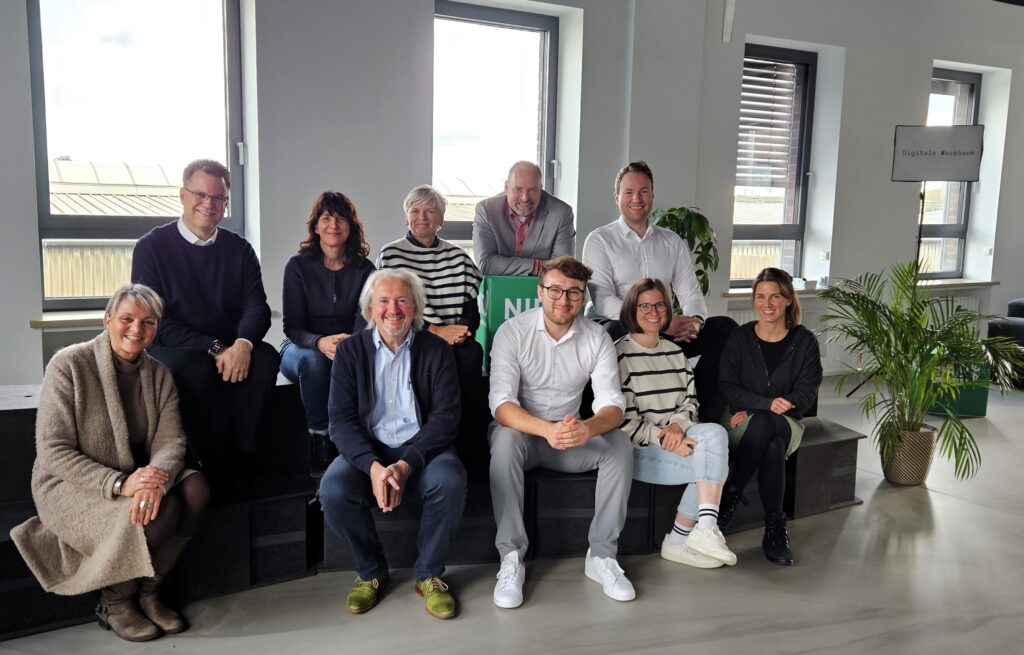The last meeting on the topic of sustainability this year took place in our port area on October 30, 2025. The focus was on current issues in our member companies and information on the EU Deforestation Regulation (EUDR).
It may seem as if the topic of sustainability is dormant, but this is not the case in many of our member companies.
This became clear right at the beginning of our lengthy round of introductions: even though the current regulatory situation regarding sustainability reporting means that many companies have delayed the reporting obligation and priorities have shifted, a lot has happened.
Numerous smaller measures are still being pursued, EcoVadis rankings are still being carried out, digital product passports and product carbon footprints (PCFs) have been introduced in some companies and certified energy management systems are on the rise. Some member companies have prepared a double materiality analysis, which is an essential pillar of a sustainability strategy. The role of auditors was viewed ambivalently, because as auditors of reports or certifications, they are expected to re-examine what has already been validated – accompanied by additional costs.
All participants reported on their company’s sustainability priorities and the challenges they face. Some have now defined clear responsibilities, some have interdisciplinary sustainability teams and even separate departments. In general, management awareness and support has increased.
In the second part of our meeting, Dr. Marcus Dill, Managing Director of Ingdilligenz GmbH from Würzburg, gave us a very informative presentation on the European Deforestation Regulation. The EU regulation concerns rules on deforestation-free supply chains. It comes into force on December 30, 2025 – for small and micro-enterprises on June 30, 2026. In terms of content, every part of the supply chain must check the deforestation risks affecting it and be able to provide information. This means that the import, trade and export of products containing the raw materials wood, oil palm, cocoa, coffee, cattle, rubber and soya, as well as certain products made from them, may only take place with a due diligence declaration.
The topic of sustainability will remain with NIRO, as companies will (have to) continue to focus on sustainable business practices as a path rather than a fixed goal.
The group would also like to see the exchange formats offered in the network in the future. There should be further face-to-face meetings around twice a year, supplemented by online formats as soon as current topics or new focal points emerge.
Many thanks at this point to our visit from Ingdilligenz. The EUDR is currently occupying many companies and the informative short presentation by Dr. Marcus Dill provided clarity on the requirements of the regulation and what needs to be considered in order to meet the requirements for deforestation-free supply chains.
